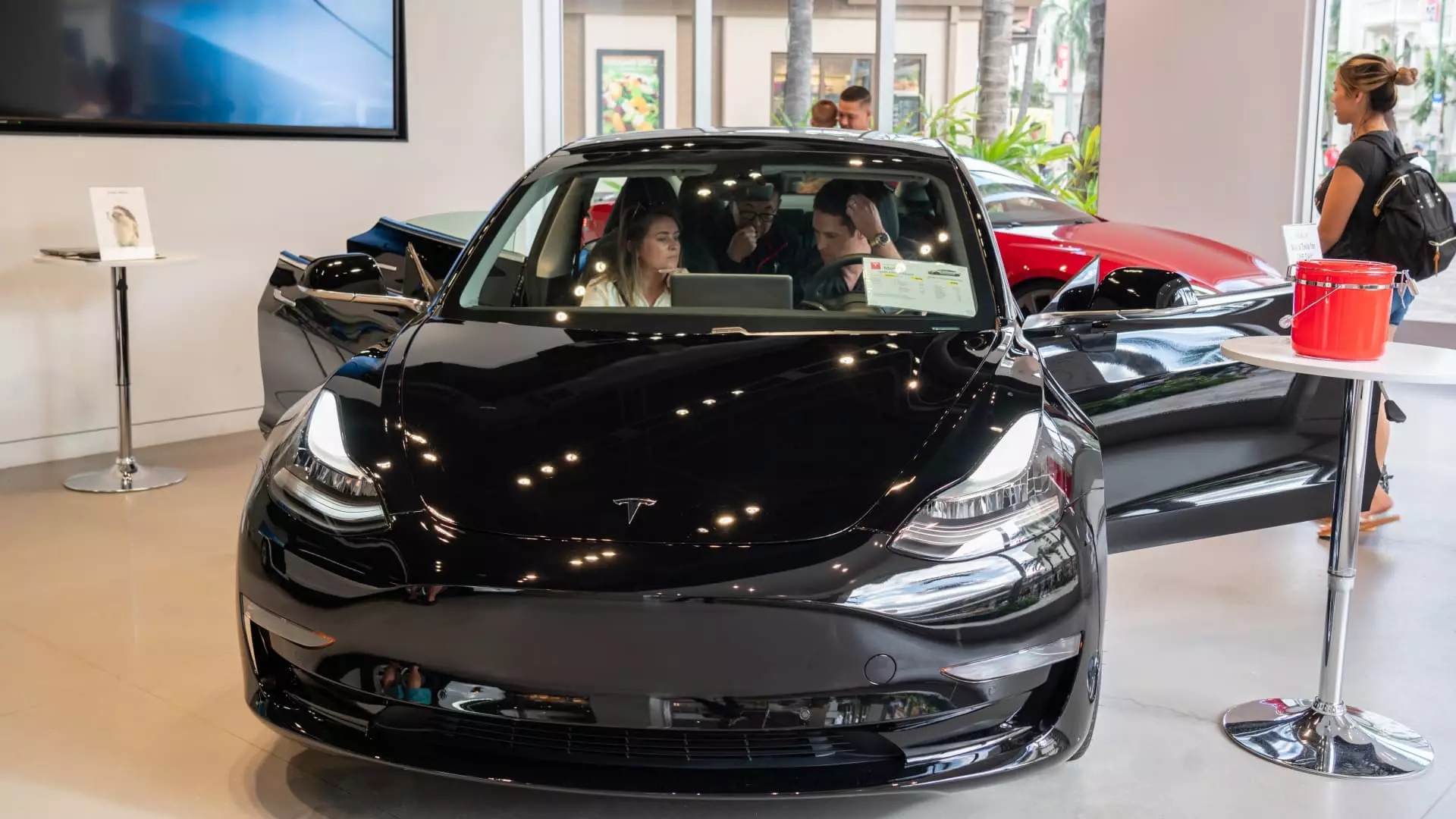The state of Hawaii has emerged as a surprising leader in the adoption of electric vehicles, with a notable 11.9% of new retail vehicles being EVs sold through February this year. This comes as a stark contrast to the slower adoption rates seen in many other parts of the U.S. According to J.D. Power, Hawaii ranks third in the nation for EV adoption score, trailing behind only California and Washington, which are traditionally seen as the frontrunners in the EV market. The prevailing question arises – what sets Hawaii apart from the rest in terms of EV adoption?
One of the key factors contributing to Hawaii’s high rate of EV adoption is the unique blend of cultural influence and environmental consciousness that exists on the islands. Ivan Drury, director of insights at Edmunds, attributes this trend to the higher sense of responsibility towards stewarding the land that is ingrained in Hawaiian culture. The concept of ‘Aina’, which stands for land in Hawaiian, reflects the deep-rooted pride and connection that Hawaiians have towards their environment. This cultural inclination towards sustainability and preserving the natural beauty of the islands has played a significant role in driving consumers towards electric vehicles.
Apart from the cultural aspect, economic factors also play a substantial role in the popularity of EVs in Hawaii. High fuel costs, with gasoline prices averaging $4.72 per gallon, have nudged consumers towards more fuel-efficient and cost-effective alternatives such as electric vehicles. The availability of renewable energy sources for charging, coupled with the relatively small size of the islands that negates road trip concerns, has further facilitated the transition to EVs. Additionally, the lack of charging infrastructure and affordability issues that plague EV adoption in other parts of the U.S. are less pronounced in Hawaii, contributing to the higher adoption rates on the islands.
Despite Hawaii’s leading position in EV adoption, the state still faces challenges similar to the U.S. mainland in terms of electric vehicle uptake. These challenges include the need for expanding charging infrastructure, enhancing affordability, and increasing the variety of vehicle choices available to consumers. A Gallup poll highlighted a decrease in the intention to buy EVs among U.S. adults, pointing towards the need for addressing these challenges to sustain the momentum of EV adoption in Hawaii and beyond. While the state has made significant progress, there is still room for growth and improvement in making electric vehicles more accessible and appealing to a broader consumer base.
Hawaii’s prominence in the electric vehicle market is not a fluke but rather a result of a unique interplay of cultural, economic, and environmental factors that have propelled the state towards a sustainable and eco-friendly transportation future. By embracing electric vehicles and overcoming existing challenges, Hawaii sets a compelling example for the rest of the nation to follow in the transition towards cleaner and greener mobility solutions.

